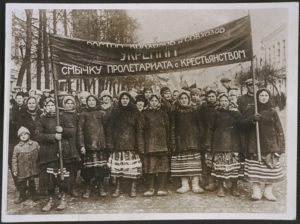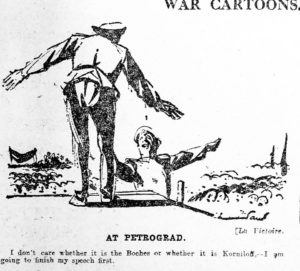Blog
-
On the Death of Comrade Sukomal Sen (1934-2017)
In 1985, when Sukomal Sen was a member of the Rajya Sabha, he stood up to speak about a World Bank loan that had been taken by the Government of India. Sen and his comrades in the communist movement warned – early on – about the insinuation of the World Bank and the International Monetary Fund (IMF) into the policy-making of the Indian government. Take their money, he suggested, and you will find yourself making their decisions. On that particular day in March 1985, Sen made his point with b[...] -
The Revolution of 1917
Today – November 7, 2017 – is the 100th anniversary of the Russian Revolution of 1917. In February of that year, the working class and peasantry – along with the soldiers – overthrew the Tsar’s regime. That October (November in our calendar), led by the Bolshevik party, the workers and peasants completed their social revolution by overthrowing the conciliatory government of the bourgeoisie led by Alexander Kerensky. Lenin, who had returned to Russia from exile, saw that behind Kerensky[...] -
The Russian Revolution Is Still Relevant Today
Brinda Karat with Aleida Guevara March, veteran of Cuba’s medical brigades and daughter of Che. The upcoming 7th November will mark the 100 years of the Russian Revolution. The Russian Revolution changed the course of history in many ways. In what is remarked as one of the most significant events of the 20th century, the ordinary Russians took control of the stage to overthrow the provisional government and established a rule of the proletariat. Various organizations around the world have o[...] -
Getting to know the ‘Bolsheviks’
In the cities of colonial India, caught in the vortex of war-time/post-war scarcity and political repression, how did the colonizers and a segment of their literate middle-class subjects perceive and depict the Bolshevik Revolution through newspaper pages? In the course of November 1917, the colonial world became gradually acquainted with Bolshevism through hostile news networks based in the West. In Kolkata, the former capital of British Empire in India until 1912 and the provincial cap[...] -
Writing About Caste Violence in Southern Tamil Nadu
K.A Manikumar I moved from Tirunelveli to Erode in 1992 to become Reader in History at Manonmaniam Sundaranar University. I was struck by the frequency with which people in the area plunged into social violence. The flimsiest pretext seemed to be sufficient. I decided to study the underlying factor for social violence in Erode. The University Grants Commission (UGC) accepted my proposal and sanctioned me to do a Major Research Project. As I began to work on the project ‘caste riots’ brok[...]




